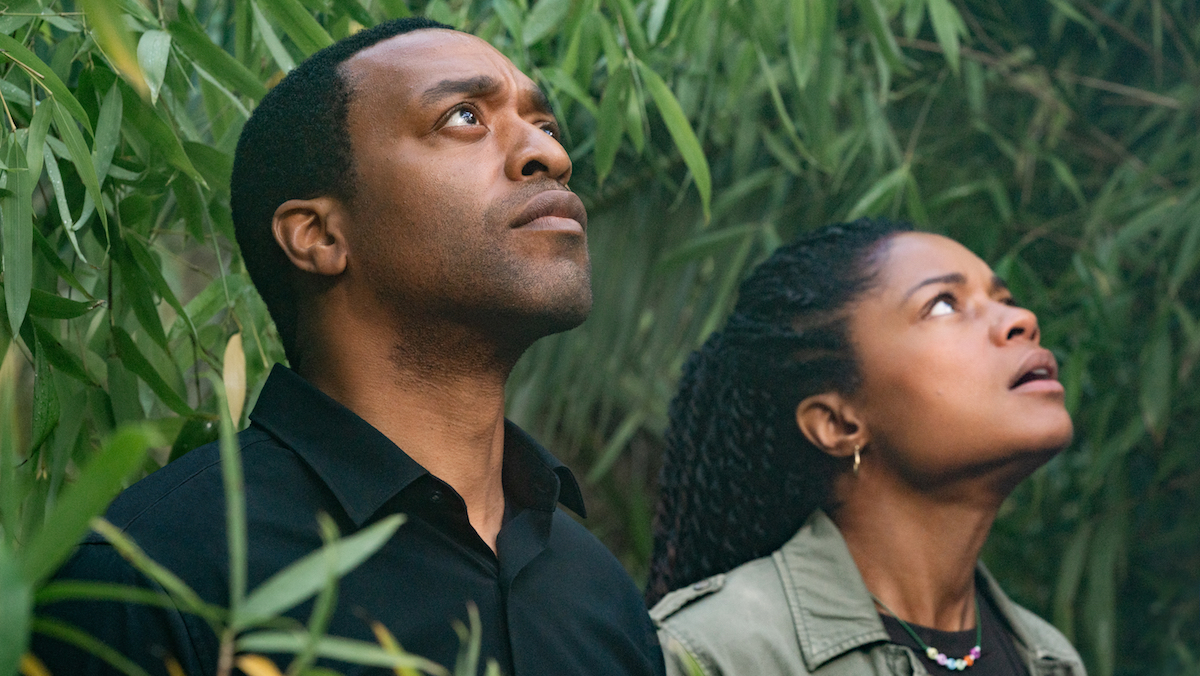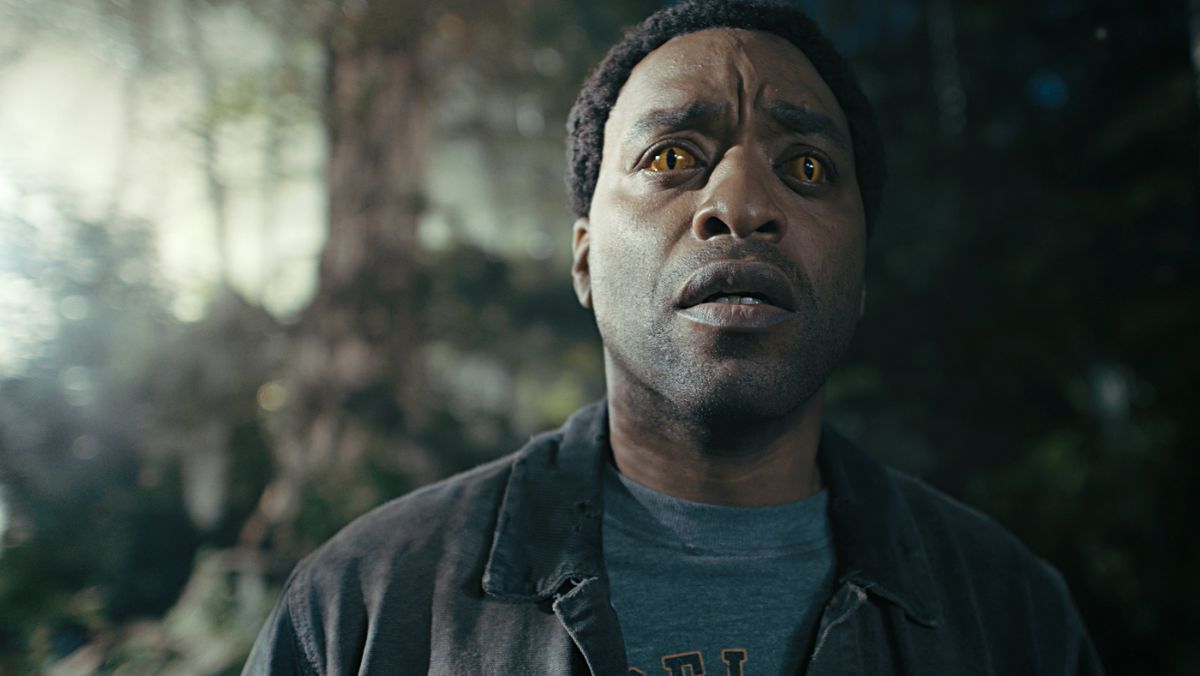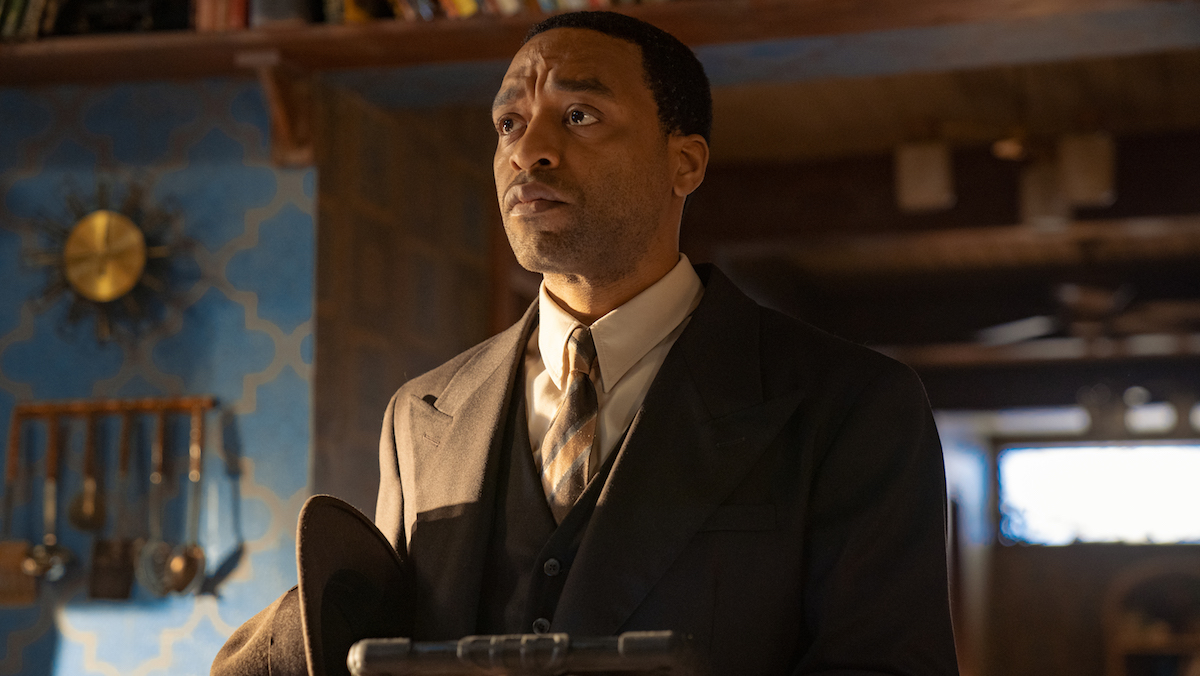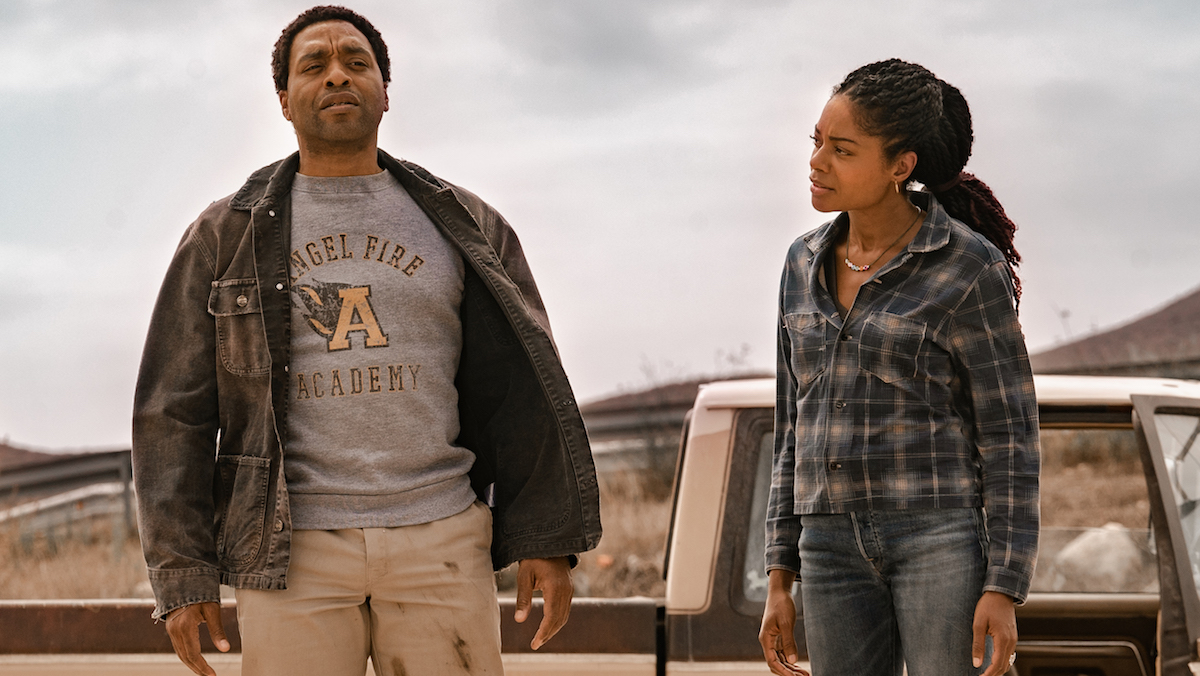During an era of reboots and revivals, The Man Who Fell to Earth is a bit of an anomaly. The Showtime series uses both the Water Tevis novel and 1976 Nicholas Roeg film of the same name as source material. But the series is a continuation, instead using Thomas Jerome Newton’s story as a jumping off point. This time, another Anthean, Chiwetel Ejiofor’s Faraday, arrives on Earth to complete Newton’s mission. And with the help for former scientist Justin Falls (Naomie Harris), they may save Anthea and Earth. It’s an ambitious move, tackling a story that once featured David Bowie in the lead role. But Alex Kurtzman and Jenny Lumet seem up to the task.
Nerdist chatted with Kurtzman, The Man Who Fell to Earth‘s co-showrunner, writer, and director, about continuing the story, and the importance of injecting humor into the story.

Nerdist: The Man Who Fell to Earth is a continuation of the story from both the novel and film, using those both as source material. How did you and your co-showrunner, Jenny Lumet, decide to incorporate certain elements from those stories in creating this whole new story?
Alex Kurtzman: I think that what Tevis did in the novel and what Roeg and Bowie did in the film were extraordinary in that all great science fiction, even if it’s writing about the future, it’s really talking about now, and that’s what both of those pieces of work were doing. For the novel, Tevis was, I think, working out many of his personal demons while writing that, and I think he felt like an alien.
He must have felt like an alien as he was writing it and used science fiction as a metaphor for everything he was going through. Nicholas Roeg captured that beautifully. And certainly Bowie’s singular performance did an amazing job of pairing an incredible sense of loneliness, and what it means to be isolated on [Earth], and to long for your home, and not knowing if you’re ever going to get back to your children and your wife.
Those were all elements that Jenny and I really wanted to hold onto. The thing is that those two stories also end in great tragedy. They’re both incredible tragedies. It’s not that we wanted to avoid tragedy, but we see enough tragedy around us all the time now. It felt to us like we needed also to remind people why life is precious and why we, human beings, actually are worthy of survival, as opposed to not—although it’s entirely dependent on the choices that we make from here. So, unfortunately, the themes that Tevis is bringing up, and certainly Roeg has echoed in the film, are timeless. We were just inheriting all of that and wanting to put a modern spin on it, because we certainly are at an inflection point now that seems even more extreme than it did then.

I was curious when I heard that Thomas Newton (now played by Bill Nighy) was going to be a part of this new story, but seeing the dissonance between him and Faraday is intriguing. Was there ever an iteration of The Man Who Fell to Earth without him?
No. There really wasn’t. We knew that we were taking a really big swing just even stepping into the realm of David Bowie, which is riddled with every possible pothole you could ever hit. Because to try and imitate Bowie would’ve been a massive mistake. And what we certainly didn’t want to do was create a character that in any way was the pale imitation of him. In the novel and in the film, the character of Thomas Newton is essentially passive. He comes here with a mission, but he gets sidelined by human vices and frailties. The first thing we recognized was that aside from the fact that we just didn’t want to do a Bowie impression, which would’ve been a terrible mistake, we couldn’t write a character on a television show that could sustain over time that was that passive.
The dramatic tension that was interesting to us was the idea that Faraday comes here really as a drone, who on his planet is only used to understanding how to follow orders. What he realized very quickly is that the person he’s used to following orders from might be insane. That suddenly makes you go, “Wait a minute. Am I even on the right mission?” And that felt really interesting to us.

Absolutely. Speaking of Faraday, how did you partner with Chiwetel Ejiofor to establish his otherworldly quirks and physicality?
Chiwetel and I worked very, very hard on what the physicality of the character would be. The first thing that Chiwetel said was, “In order for me to understand how I move here, I have to understand how I moved on Anthea,” and the idea that gravity was different. So, gravity would crush his body. That came actually from a very specific thing in the novel and in the film, which is that in the film you see Bowie’s character, Thomas Newton, get into an elevator.
Suddenly his nose starts to bleed and he collapses, because just the small movement upward is such tremendous pressure on his body, and it crushes him. That was a detail that we actually found really interesting and we wanted answers to. And so Chiwetel and I riffed off that and began to build a character who had to move a certain way because his body was acclimating to gravity now.
Also we came up with a whole language on Anthea—the way that the Antheans communicate—which you’ll learn more about in later episodes of the season. But the woman who plays his wife is a woman named Coral Messam, who’s also an incredible choreographer. Coral choreographed all the dancing in Steve McQueen’s Small Axe film, Lovers Rock… And so, we spent a lot of time together working on what that physicality was. When Faraday says in the pilot, “f***, money now,” and he moves his hand up like this, [Kurtzman demonstrates the movement, moving his index finger upwards] that actually is the Anthean version of “now.” So, you wouldn’t know it, because Chiwetel had invented that language and we [were like] “Okay. How do you say that in Anthean?” Then, he could incorporate it into his physicality.
Justin is another really fascinating character. How did you craft Justin as the grounding yet complicated force in The Man Who Fell to Earth?
Well, Jenny and I knew right out of the gate that Justin is essentially the audience. It’s one thing to ask the audience to relate to an alien character, but they’re going to need an anchor in a human being. One of the things that we like so much about science fiction, or any genre, is the idea of how very ordinary people react in extraordinary circumstances. And audiences can often really relate to that.
It’s also where you get a lot of your humor, because human reactions to insanity like that can be really funny. Not because you’re reaching for a joke, just because the behavior is funny. And that was exciting. But we needed somebody who could be the audience, and Naomie has this natural radiant, empathic quality. You just instantly connect to her when she’s on screen. Jenny and I built the character of Justin in the pilot in a very particular way, and it was really something when Naomie opened her mouth for the first time and started saying the words, it was exactly what we had had in our head for the three years that we’d been writing it, which is a very special moment.

Justin and Faraday’s missions are linked and they have a really profound connection when they’re together. How did you build the parallels between the characters and setting up that dynamic?
A lot of it was on paper. Justin is a woman who is a once in a generation mind, and it’s because of her once in a generation mind that she got into what she perceived as big trouble, and ended up shutting down emotionally as a result of what happened. When we meet her, she’s very much on autopilot. She’s like, “I’m just trying to get through my day. I’m just trying to get enough money to feed my child and keep my father alive for as long as I can.”
And when Faraday meets her and says, “You are essential. You’re vital to the mission. You matter,” it’s ringing a distant bell in her that’s very hard. She hears it, but she doesn’t want to hear it. And once she accepts the mission and they begin to connect with each other, part of what she, in turn, teaches Faraday is that as an Anthean, it’s not that he didn’t feel things. It’s that they didn’t process things the way human beings process them.
Antheans can still love their children, and love their families, and mourn the dead, but they don’t process it in an emotive way. We took the spirit of what happens to Thomas Newton in the novel and in the film, which is that he becomes more human, but what we said was, we don’t just want it to be about him becoming an alcoholic. We actually want it to be about him discovering all the different shades of what it means to be a human being, to discover what it means to love somebody openly, to understand what it means to lose somebody and what that actually feels like, what it means to laugh, what it means to love your children openly, what it means to miss your children.
The Man Who Fell to Earth airs on Sundays on Showtime.
